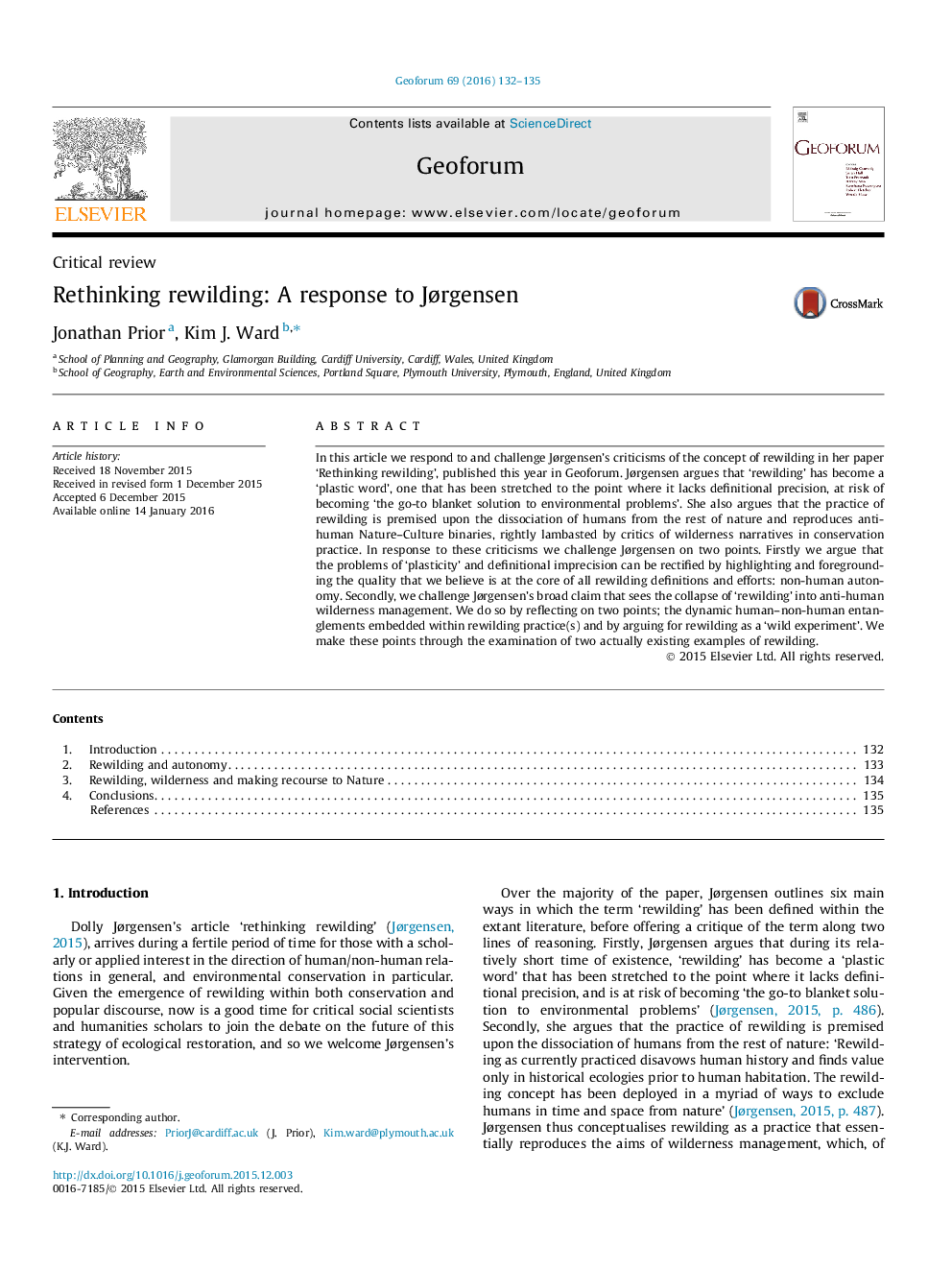| Article ID | Journal | Published Year | Pages | File Type |
|---|---|---|---|---|
| 5073636 | Geoforum | 2016 | 4 Pages |
In this article we respond to and challenge Jørgensen's criticisms of the concept of rewilding in her paper 'Rethinking rewilding', published this year in Geoforum. Jørgensen argues that 'rewilding' has become a 'plastic word', one that has been stretched to the point where it lacks definitional precision, at risk of becoming 'the go-to blanket solution to environmental problems'. She also argues that the practice of rewilding is premised upon the dissociation of humans from the rest of nature and reproduces anti-human Nature-Culture binaries, rightly lambasted by critics of wilderness narratives in conservation practice. In response to these criticisms we challenge Jørgensen on two points. Firstly we argue that the problems of 'plasticity' and definitional imprecision can be rectified by highlighting and foregrounding the quality that we believe is at the core of all rewilding definitions and efforts: non-human autonomy. Secondly, we challenge Jørgensen's broad claim that sees the collapse of 'rewilding' into anti-human wilderness management. We do so by reflecting on two points; the dynamic human-non-human entanglements embedded within rewilding practice(s) and by arguing for rewilding as a 'wild experiment'. We make these points through the examination of two actually existing examples of rewilding.
